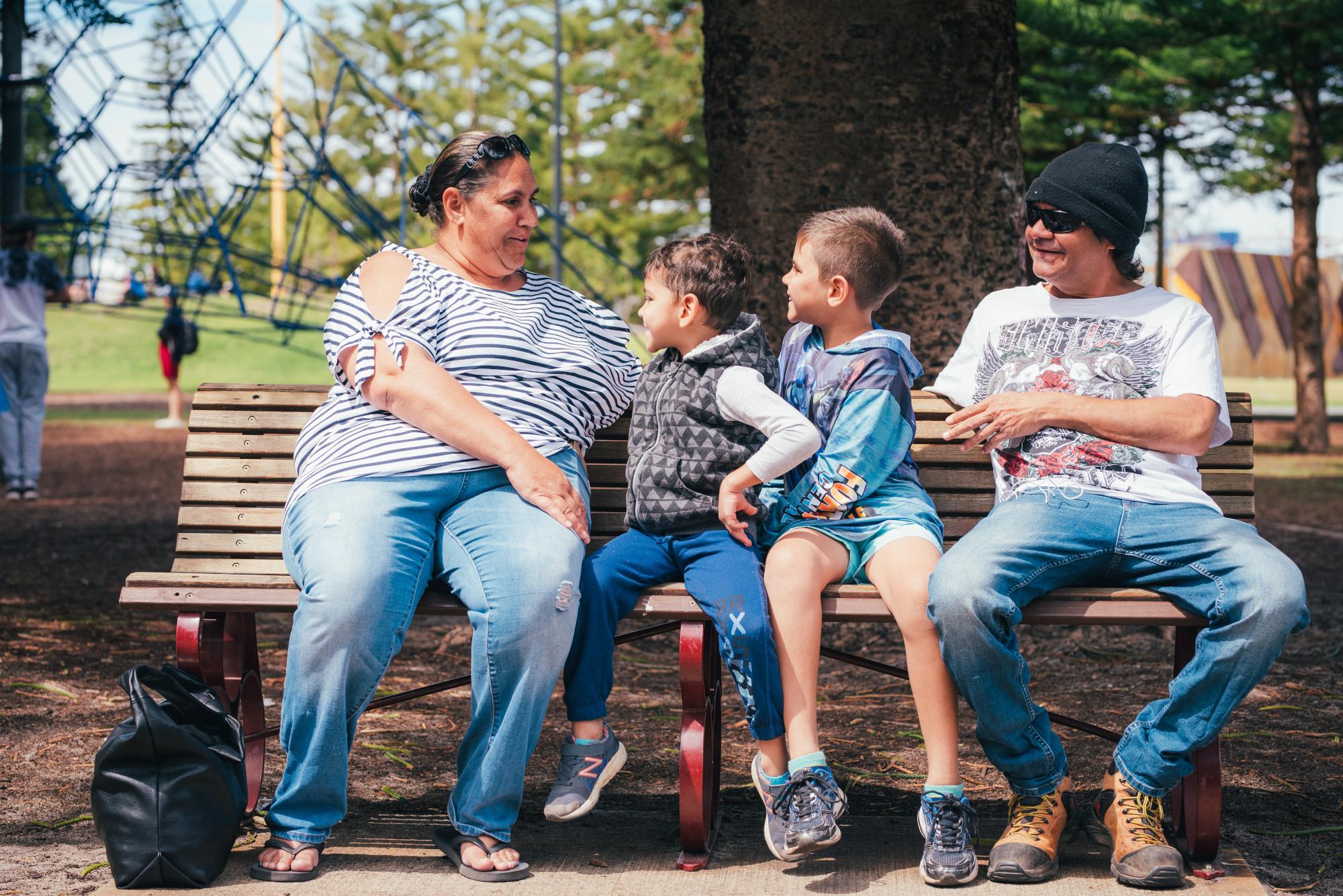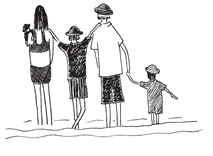Talk soon. Talk often.

Where do we start?
Most parents and carers know that, just like learning how to play or talk, sexual development is a part of human development.
Most parents know and believe that talking to their kids about sexual matters is important. And they are right – it does make a positive difference.
The problem is that many of us grew up at a time when talking about sex within the family wasn’t done. We feel we don’t have a model to copy.
This is especially true for men. At least girls usually got some information about periods and babies (from Mum), but boys (who are now men) often missed out on any sort of parent talk about bodies, sex and relationships.
If you were a same-sex attracted, transgender or intersex child then you may have had even fewer conversations that felt relevant to you.
Technology has changed a lot too and plays a different role in relationships than when we were growing up.
We can be so worried about getting it right, perfectly right, that we end up saying nothing at all.
With our generation, our parents – sex was just a taboo subject. Whereas this generation, we’re more open about it. Back when I went to school, some people had sex education, and a lot of people didn’t. It made it easier if you had something.
Parent
It's not one big talk
Here's the good news.
Helping your child towards a happy, healthy sexuality does not come from ‘One Big Talk’ that you have to get perfectly scripted.
You might also be glad to know that talking with your children about sex will not make them go out and do it.
In fact, talking about sex with young people has the opposite effect.1
It’s not one big talk, but lots of little conversations. Repeated.
Life presents lots of opportunities to chat, ask opinions and make comments, embrace these opportunities to revisit conversations – little and often. By doing this, your child will have learnt the most important message:
They can talk about this subject with you.
What is sexuality? It's not just sex
‘Sexuality’ covers feelings you have about your body, growing up, identity, sexual feelings and expression, gender, making babies, love and closeness, personal values and relationships.
Fundamentally, it’s about caring for (and enjoying) yourself, your body and others.
Love makes a family.
Families and parents come in all shapes and sizes – Talk soon. Talk often. is for anyone who plays a role in raising a child.
Nuclear family, sole parent, extended family, heterosexual, same-sex, gender diverse, living between two households, with biological children, adopted children, donor children, kinship carers, with or without custody of children, co-parents, foster parents, grandparents and step-parents.
 All family and parent types can raise healthy, happy children – the sexuality or relationship status of a parent or caregiver is not the determining factor.
All family and parent types can raise healthy, happy children – the sexuality or relationship status of a parent or caregiver is not the determining factor.
We want kids to learn to care for and enjoy themselves and their bodies, and to care for others. We want them to enjoy caring, equal, respectful relationships. We also want to prevent unwanted pregnancies, sexually transmissible infections (STIs) and non-consensual sex.
Talking a little and often, and going over the same topics makes a positive difference to your child’s sexual health and relationships.
I’ve probably never sat down and discussed the birds and the bees. It’s not been like that. They’re boys, and you go, we’ll have a bit of a chat about that now. It’s not even if they ask, it’s as if something goes ‘ping’ in my head, and I can connect bits
Parent of boys 11, 13 and 16
